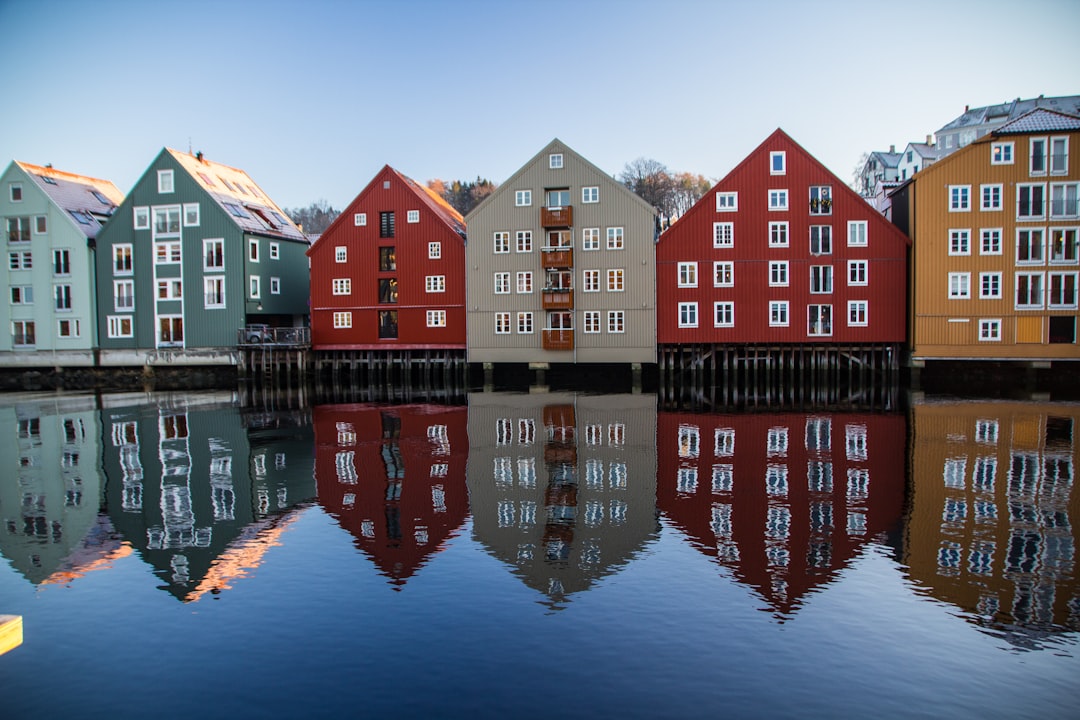A Sykkelhotell, or bike hotel, is a dedicated facility designed specifically for the storage and maintenance of bicycles. Unlike traditional bike racks or general storage units, a Sykkelhotell offers a secure and often climate-controlled environment where cyclists can safely park their bikes. These facilities are becoming increasingly popular in urban areas, particularly in Norway, where cycling is not just a mode of transport but a way of life.
The concept is rooted in the idea of providing cyclists with peace of mind, knowing that their bicycles are protected from theft and the elements. Typically, a Sykkelhotell is equipped with various amenities that cater to the needs of cyclists. This may include bike repair stations, charging points for electric bikes, and even lockers for personal belongings.
The design of these facilities often reflects a modern aesthetic, making them an attractive addition to the urban landscape. As cities strive to promote sustainable transport options, Sykkelhotells are emerging as a vital component in the infrastructure supporting cycling. Book your 1-hour strategy session with Norway Relocation Group.
Summary
- A Sykkelhotell is a secure bicycle storage facility commonly found in Norway.
- Using a Sykkelhotell provides benefits such as secure storage, protection from weather, and convenience.
- Sykkelhotells differ from regular bike storage by offering enhanced security, weather protection, and often additional services.
- Sykkelhotells can be found in various locations across Norway, including major cities and transportation hubs.
- The history of Sykkelhotells in Norway dates back to the early 2000s and has since grown in popularity and importance.
The Benefits of Using a Sykkelhotell
Utilising a Sykkelhotell comes with numerous advantages that enhance the cycling experience. One of the primary benefits is security. With the rise in bicycle thefts, having a dedicated space that offers robust security measures can significantly reduce the risk of losing one’s bike.
Many Sykkelhotells are equipped with surveillance cameras, secure locking systems, and sometimes even on-site personnel to ensure that bicycles are well-protected. In addition to security, Sykkelhotells provide convenience for cyclists. They often feature easy access points, allowing users to park and retrieve their bikes quickly.
This is particularly beneficial in busy urban areas where finding a safe parking spot can be challenging. Furthermore, many facilities offer additional services such as bike maintenance and repair stations, which can save cyclists time and effort. By providing these amenities, Sykkelhotells encourage more people to choose cycling as their primary mode of transport.
How Sykkelhotells are Different from Regular Bike Storage

While both Sykkelhotells and regular bike storage serve the purpose of housing bicycles, they differ significantly in terms of features and services offered. Regular bike storage options may include simple racks or sheds that provide minimal protection against theft or weather conditions. In contrast, Sykkelhotells are designed with the cyclist’s needs in mind, offering enhanced security features and additional services that go beyond mere storage.
Moreover, Sykkelhotells often incorporate advanced technology to improve user experience. Many facilities allow users to reserve spaces online or through mobile applications, making it easier to plan trips without worrying about parking availability. Additionally, some Sykkelhotells offer climate control to protect bicycles from harsh weather conditions, ensuring that they remain in optimal condition.
This level of service and attention to detail sets Sykkelhotells apart from traditional bike storage solutions.
Where to Find Sykkelhotells in Norway
Norway has embraced the concept of Sykkelhotells with enthusiasm, and they can be found in various locations across the country. Major cities such as Oslo, Bergen, and Trondheim have established multiple facilities to cater to the growing number of cyclists. In Oslo, for instance, several Sykkelhotells are strategically located near public transport hubs, making it convenient for commuters to switch between cycling and other forms of transport.
In addition to urban centres, some rural areas are also beginning to adopt this model as part of their efforts to promote cycling tourism. These facilities not only serve local residents but also attract tourists who wish to explore Norway’s stunning landscapes on two wheels. As the popularity of cycling continues to rise, it is likely that more Sykkelhotells will emerge throughout the country, further enhancing accessibility for cyclists.
The History of Sykkelhotells in Norway
The concept of Sykkelhotells in Norway has evolved over the years alongside the country’s growing cycling culture. Initially, bike storage options were limited and often inadequate for the needs of cyclists. However, as urbanisation increased and more people began to embrace cycling as a sustainable mode of transport, the demand for secure and convenient bike storage solutions grew.
The first Sykkelhotells began appearing in Norwegian cities in the early 2000s as part of broader initiatives aimed at promoting cycling and reducing carbon emissions. These facilities were designed not only to provide secure storage but also to encourage more people to consider cycling as a viable alternative to driving. Over time, the concept gained traction, leading to the establishment of more sophisticated facilities equipped with modern amenities tailored to cyclists’ needs.
The Environmental Impact of Sykkelhotells

The environmental impact of Sykkelhotells is significant, particularly in a country like Norway that prioritises sustainability. By providing secure storage for bicycles, these facilities encourage more people to choose cycling over driving, thereby reducing traffic congestion and lowering carbon emissions. As cities become more congested and pollution levels rise, promoting cycling through initiatives like Sykkelhotells becomes increasingly important.
Moreover, Sykkelhotells contribute to a healthier urban environment by supporting active transportation methods. Cycling not only reduces reliance on fossil fuels but also promotes physical activity among residents. As more people cycle regularly, there is potential for improved public health outcomes and reduced healthcare costs associated with sedentary lifestyles.
In this way, Sykkelhotells play a crucial role in fostering a more sustainable and health-conscious society.
How to Use a Sykkelhotell
Using a Sykkelhotell is typically straightforward and user-friendly. Most facilities require users to register either online or on-site before accessing the storage area. Once registered, cyclists can reserve a space for their bike through an app or website, ensuring that they have a designated spot upon arrival.
This system not only streamlines the process but also helps manage demand during peak times. Upon arrival at the Sykkelhotell, users can securely park their bikes using designated locking mechanisms provided by the facility. Many locations also offer additional services such as bike maintenance stations or charging points for electric bikes.
After parking their bikes, users can retrieve their belongings from lockers if needed before heading off on their journey. The ease of use associated with Sykkelhotells makes them an attractive option for both casual cyclists and daily commuters alike.
Security Measures in Sykkelhotells
Security is one of the foremost concerns for cyclists when it comes to storing their bikes. Sykkelhotells address this issue by implementing various security measures designed to protect bicycles from theft and vandalism. Most facilities are equipped with high-quality locking systems that require users to enter a personal code or use an access card to gain entry.
In addition to physical security measures, many Sykkelhotells also employ surveillance cameras that monitor activity within and around the facility. This added layer of security provides peace of mind for users who may be concerned about leaving their valuable bicycles unattended. Some locations even have on-site staff who can assist with any issues or concerns that may arise during operating hours.
The Future of Sykkelhotells in Norway
As cycling continues to gain popularity in Norway, the future of Sykkelhotells looks promising. Urban planners and local governments are increasingly recognising the importance of integrating cycling infrastructure into city designs. This shift towards sustainable transport solutions suggests that we will see an expansion of Sykkelhotells across both urban and rural areas.
Moreover, advancements in technology may further enhance the functionality of these facilities. Innovations such as smart locking systems and integrated apps could streamline user experiences even more while providing valuable data on usage patterns and demand. As cities strive to become more bicycle-friendly, Sykkelhotells will undoubtedly play a pivotal role in shaping the future landscape of urban mobility.
Sykkelhotells and Urban Planning
The integration of Sykkelhotells into urban planning is essential for creating cities that prioritise sustainable transport options. By incorporating these facilities into new developments or retrofitting existing structures, city planners can encourage more residents to adopt cycling as their primary mode of transport. This not only alleviates traffic congestion but also contributes to cleaner air quality and improved public health outcomes.
Furthermore, well-placed Sykkelhotells can enhance connectivity between different modes of transport, such as buses and trains. By providing secure parking for bicycles near public transport hubs, cities can create seamless transitions for commuters who wish to combine cycling with other forms of travel. This holistic approach to urban planning fosters a culture of cycling while addressing broader environmental concerns.
The Role of Sykkelhotells in Promoting Cycling Culture in Norway
Sykkelhotells play a crucial role in promoting a vibrant cycling culture throughout Norway. By providing secure storage options and additional amenities tailored specifically for cyclists, these facilities encourage more individuals to embrace cycling as part of their daily lives. As more people take up cycling, it fosters a sense of community among cyclists and contributes to a shared identity centred around sustainable transport.
Moreover, as cities invest in expanding their network of Sykkelhotells, they send a clear message about the importance of cycling within urban environments. This commitment not only supports existing cyclists but also attracts new riders who may have previously been deterred by concerns over bike security or convenience. Ultimately, by prioritising cycling infrastructure like Sykkelhotells, Norway is paving the way for a healthier and more sustainable future for all its residents.
In conclusion, the Norwegian courses at the NLS Norwegian Language School in Oslo offer an excellent opportunity for those looking to immerse themselves in the local culture while learning about innovative concepts like Sykkelhotells. Understanding such initiatives can enhance one’s appreciation for Norway’s commitment to sustainability and active living—values that are deeply embedded in Norwegian society. Whether you are a local resident or an international visitor keen on exploring Norway’s cycling culture, learning Norwegian at NLS will undoubtedly enrich your experience as you navigate through this beautiful country on two wheels!
Speak Norwegian with confidence. Enroll in a class at the NLS Norwegian Language School now.

